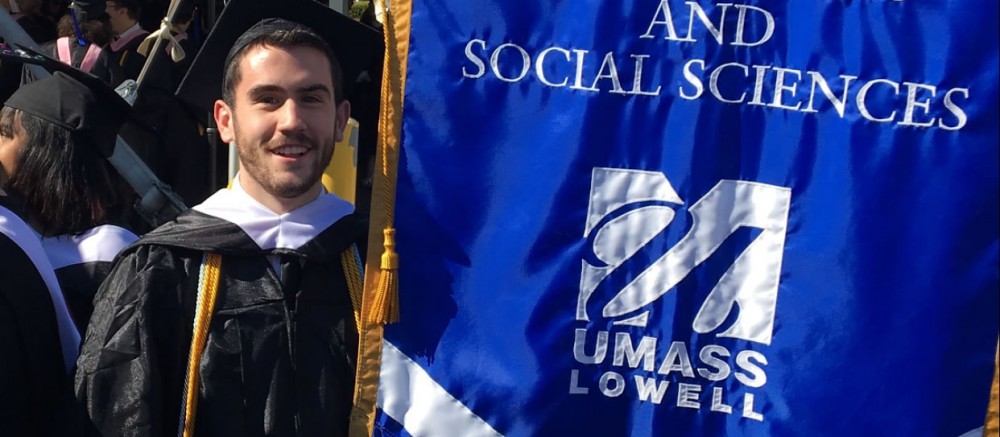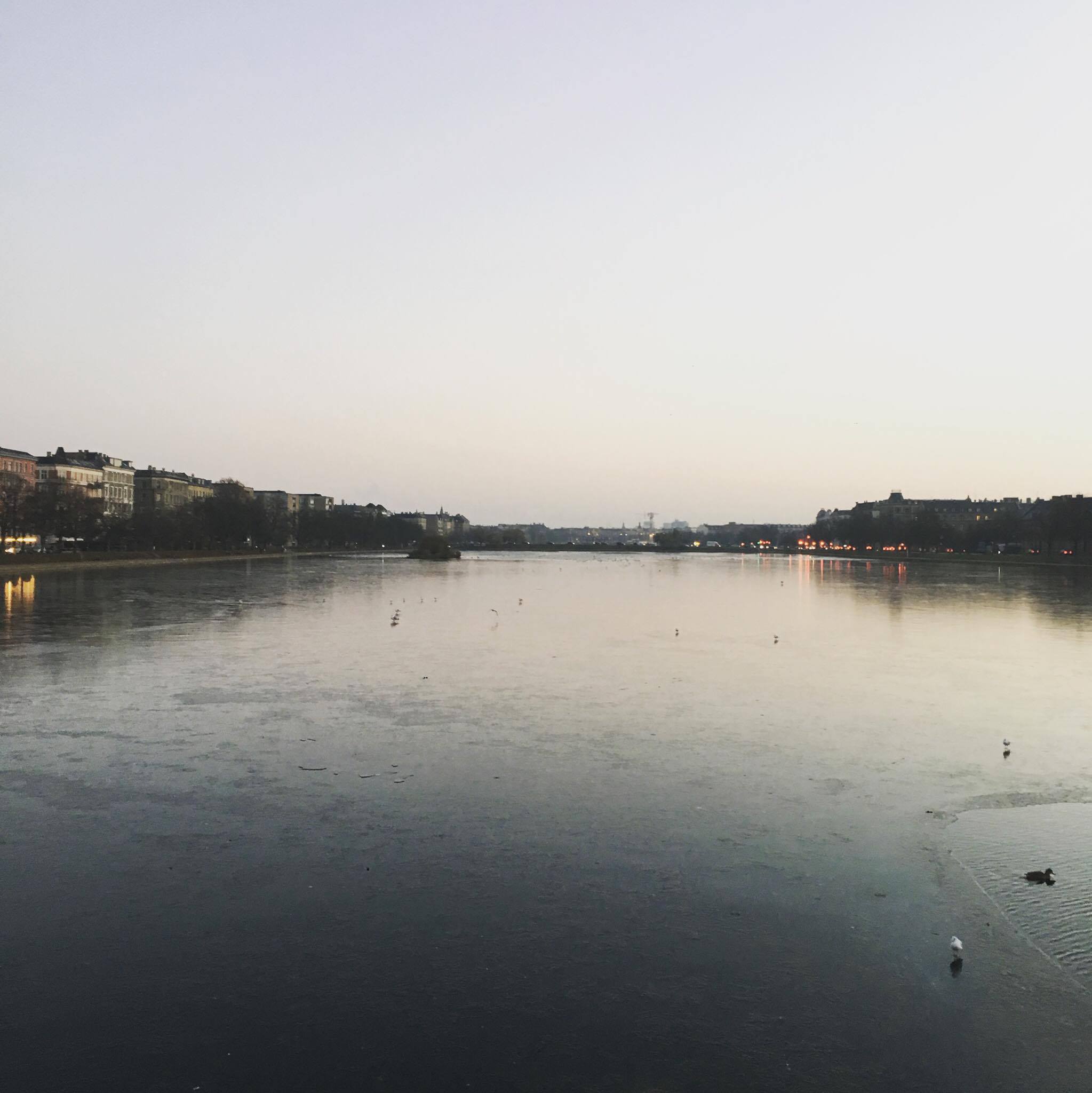
Home? after a long month.
Hold on for a long blog post!
One of the defining characteristics of my time in Copenhagen has been the seemingly vast number of things to do (given the relatively small size of the city) in contrast to the rapidly decreasing daylight hours and my increasing seasonal affective depression (sad!). Every day, new events in Copenhagen pop into my Facebook feed that friends are attending, and it seems like there is so much more I could and should be doing than what I’m doing daily. Given the studying I’m doing and the lack of rigidity I have when keeping to a schedule, the amount of time I can muster to do the remaining tasks and events in my schedule decreases as the daylight does.
One of the events I have managed to keep in my schedule despite this was one I was most excited to be a part of before I came to Copenhagen. The event is known as ‘J-Dag’ – the unofficial beginning of Christmas in Denmark. On this day, Christmas begins because the Carlsberg Foundation says it does. The Carlsberg Foundation is the principal owner of the Carlsberg Group – a German-style Danish brewing company which has a near-monopoly on the Danish beer market – and they throw out free ‘Julebryg’ (its Christmas beer), in addition to shipping it to nearly every bar in town. (When I say that Carlsberg has a near-monopoly on the market, I mean it: the market is saturated by Carlsberg and Tuborg – the national beers of Denmark – and the tendrils of the Carlsberg Foundations can be found in various aspects of Danish life. Together the beers of the Carlsberg group account for over 80% of beer sales in Denmark, and consequently pale lager – for better or worse – becomes the best you can find. A disappoint reality for a beer enthusiast like me.)
J-Dag is a very one-note affair, and it embraces this fact. I first read about J-Dag in one of the final chapters of ‘The Year of Living Danishly’, a book by British journalist Helen Russell. In the book, J-Dag sounded like a remarkable and festive celebration of all that was exciting about Christmas in Denmark and their beer culture more generally. People lined up in crowds to receive their free beer, and it was thrown into the crowds with reckless abandon. This was not quite the case in practice; while there was some beer distribution in the streets, my friends and I were forced to retreat to a hole-in-the-wall after being disappointed to find that little-to-nothing-at-all was happening in the streets of Copenhagen.
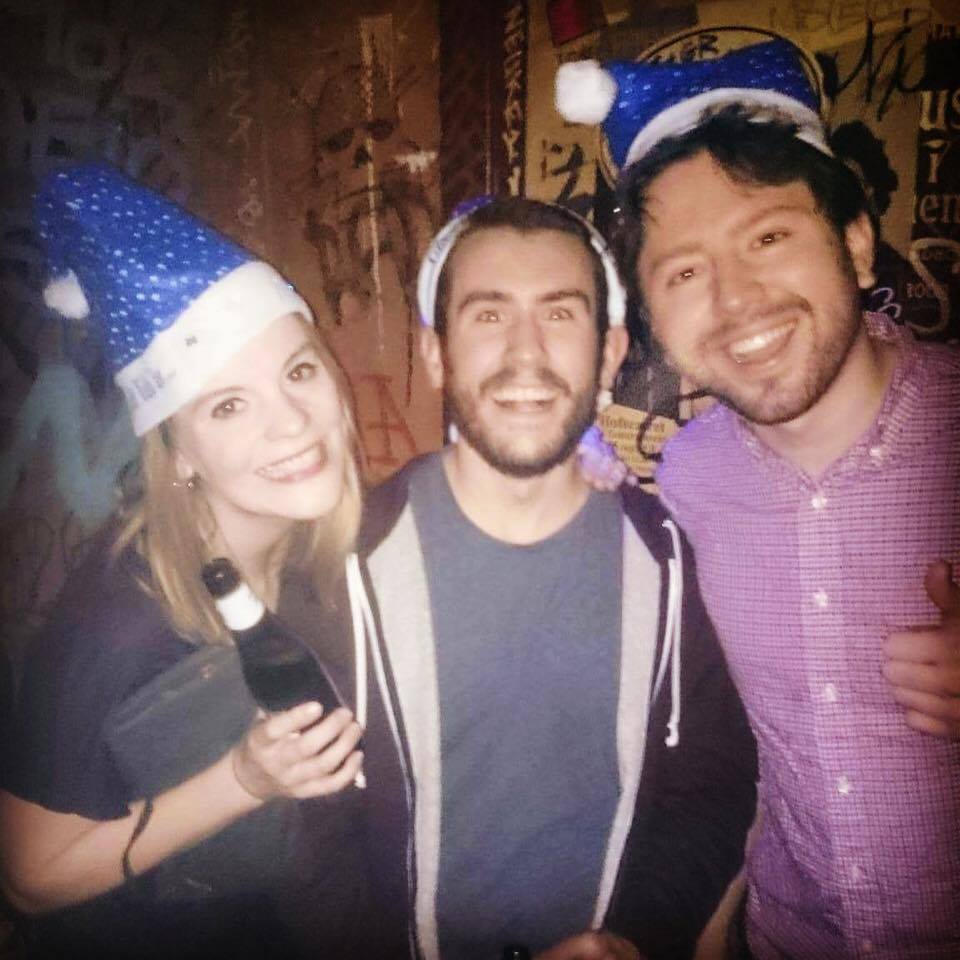
Bad photo, good friends.
It was in that bar that the real fun began. Just when we were at the height of our disappointment, we found a seat and went back to the bar to try and salvage the night. As soon as we had done that, a group of adult human beings dressed as elves came in with a speaker playing music and more crates of beer and Santa hats than they possibly knew what to do with. They proceeded to distribute said hats and beer to everyone in the bar, and more fun was had in ten minutes than was had, or would be had, the entire night. Once that fact was set, the night only got better, and while the overall effect was not nearly as dramatic and exciting as it was in Helen Russell’s writing, it was exciting to experience the beginning of Christmas – on November 4th, mind you – in an entirely different cultural context.The beginning of this month also marked several other exciting events, two of which are worth discussing and one of which might well lead to the decline of democracy in West. Let’s start with the positive events. After two months of living in
The beginning of this month also marked several other exciting events, two of which are worth discussing and one of which might well lead to the decline of democracy in West. Let’s start with the positive events. After two months of living in Valby, an outer district of Copenhagen, I moved out of my temporary accommodation there to a place in Nørrebro, one of the innermost neighborhoods of Copenhagen, and by far the youngest, most dynamic, and most diverse. The change was refreshing: instead of being in a small, sad apartment on the outskirts of the city, I would be in a large apartment with three roommates in the center of the city. The change was immediately felt: the commute to class was shorter, the apartment was easier to study in, the neighborhood was better, and I finally felt like I was living in the big (small) city. The downside: the apartment is only for one month. (As of this writing, I have found a more permanent place in Nørrebro; there’s a two-month period in which I can stay, and then after that I have the flexibility of deciding whether I would like to stay for find a new place altogether.)
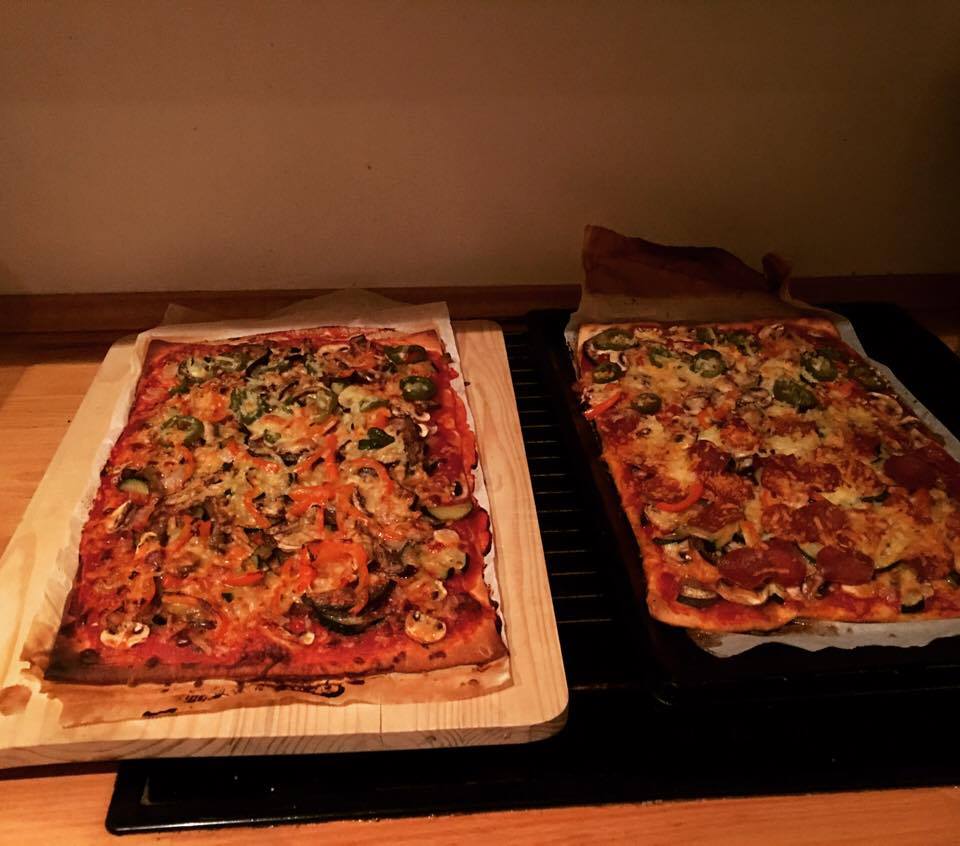
Pizza distracts me from the fact that it’s only a month.
I cannot say that I expected one of the defining aspects of my time in Copenhagen to be the constant moving and affect it has on getting settled. While I do feel settled in the emotional and bureaucratic sense, as I have discussed in previous blogs, in the material sense it has been difficult. The lack of a permanent space has meant that I have not invested in too many items to furnish my living space, and I have had to get by with only the essentials out of necessity. This has its benefits, such as being able to focus on my studies, but also its downsides, including the constant searching and the relative lack of many of the perks of a settled life. The Copenhagen housing market is very saturated with eager students and internationals looking for apartments and too few apartments to go around. It takes time, and while housing prices are not as bad as they are in many cities, you pay for what you get and the market only awards patience. There has been a lot of rejection, and I’m glad to be moving on to something (hopefully) more permanent. But who knows.
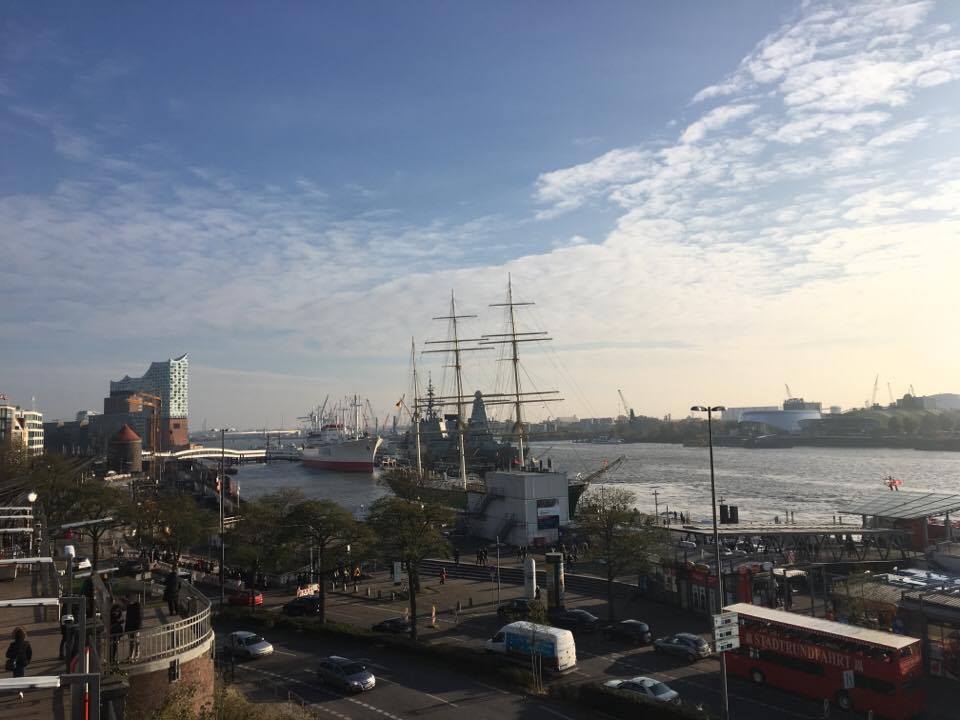
The Port of Hamburg
It’s been a busy month. Two weekends ago, after all the travel I’d already done, I got another chance to go on what I am choosing to be my last vacation of the semester. (My last hurrah.) I went on a weekend away to Hamburg in the North of Germany with some friends, and while more relaxed than some of my other trips, it was exactly what I needed. The weekend was a lot of fun, and something which I don’t often get to do a lot while traveling: not be a tourist. We just wandered around, made friends, cooked food, checked out some cool stuff, ate more food, got cold, enjoyed each other’s company and, above all, had a good time. Hamburg is a beautiful port city, something I forgot but which proved to be a refreshing part of the experience. We took a lot of pictures and mainly just did what we wanted to and screwed around, despite my best (and annoying!) efforts to corral my friends and provide some focus to what we were doing. Turns out we didn’t need it, and the weekend was all the better for it, an important lesson for me and the way I think about traveling.
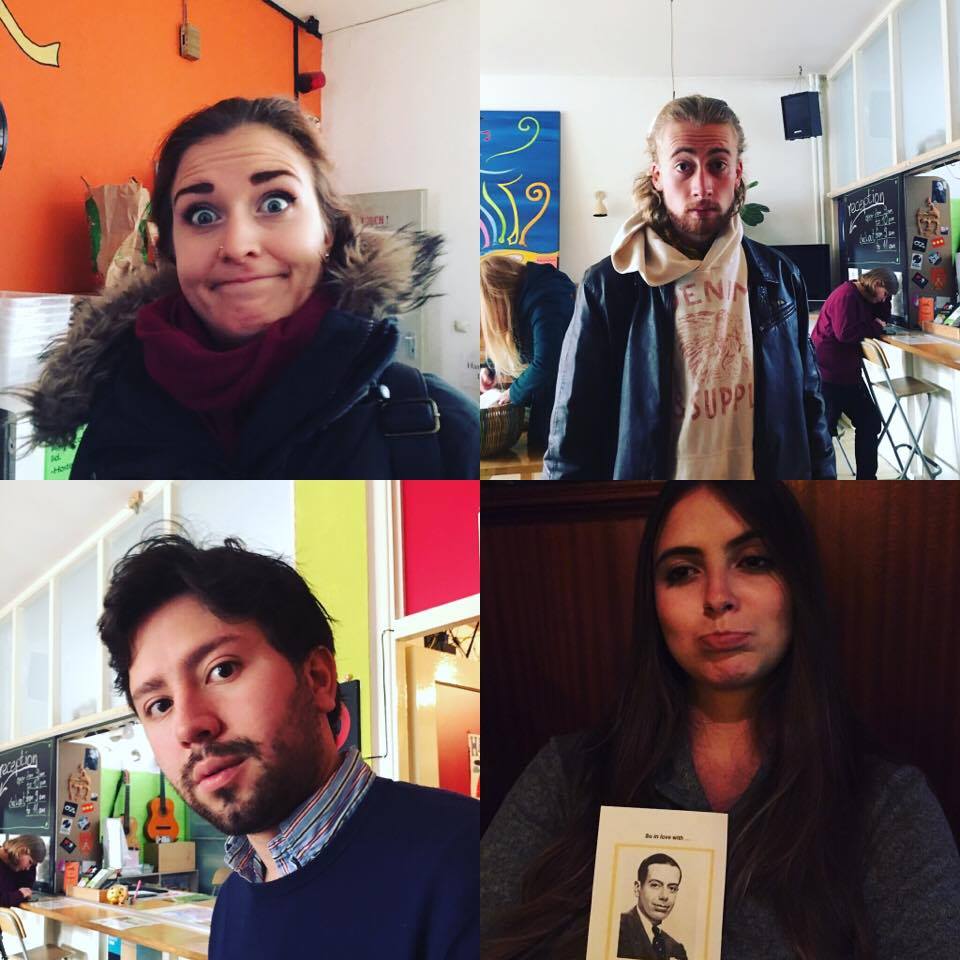
Frendz
Before I end this blog, I must comment on the events of November 8th, which can only be described as, uh, unexpected. The current political climate in Europe is one of immense fear and skepticism of populism, both that of America and of that going on in Europe more generally through events such as Brexit. As such, there has been intense interest in the American election, to the extent that I feel like I have talked with friends over here about it almost as much as I have back home (albeit in decidedly different and less politicized terms).
The Election viewing party I got to attend was hosted by another American: a girl named Stephanie (the only other American in my course) who also happens to be from the Boston area. We are six hours ahead of the American East Coast and as such had to pull an all-nighter to watch the Election. We invited several of our friends over, and the fun of the beginning of the night – guess which States Trump will win! let’s watch Saturday Night Live clips – soon gave way to the realization that not only was he going to win, but he was going to win widely (at least on the Electoral Map). Once it hit 3 in the morning (9pm here) it became clear that he had the momentum. Once the final polls closed at 11, it was 5 in the morning and we were all crestfallen with the possibility of Trump being the next American President. Knowing that we all had class the next day, we decided to head home for the briefest of sleeps so that we could wake up and find out who the (likely still contested) new leader of the free world would be. Cycling home, it was the first snow of the year, and as that snow turned into ice cold rain I took it as a dark omen that I would wake up to Trump as the next President.
It’s weird, I can only describe the events of the following day as something resembling a wake. I kept getting messages and comments from people saying that they were sorry, or that they hoped I was OK. It was bleak. Nobody expected it, and even the narrow margin the polls gave her to win in the final days did not disseminate well in Europe. People expected her to win by a semi-comfortable margin, especially over here, and there was a feeling of true shock. Even reading the polls regularly like I do, the true shock was not that his support narrowed in the popular vote – which he still did not win – but that he took so many swing states so comfortable. At the same time, Brexit told us that it was a possibility.
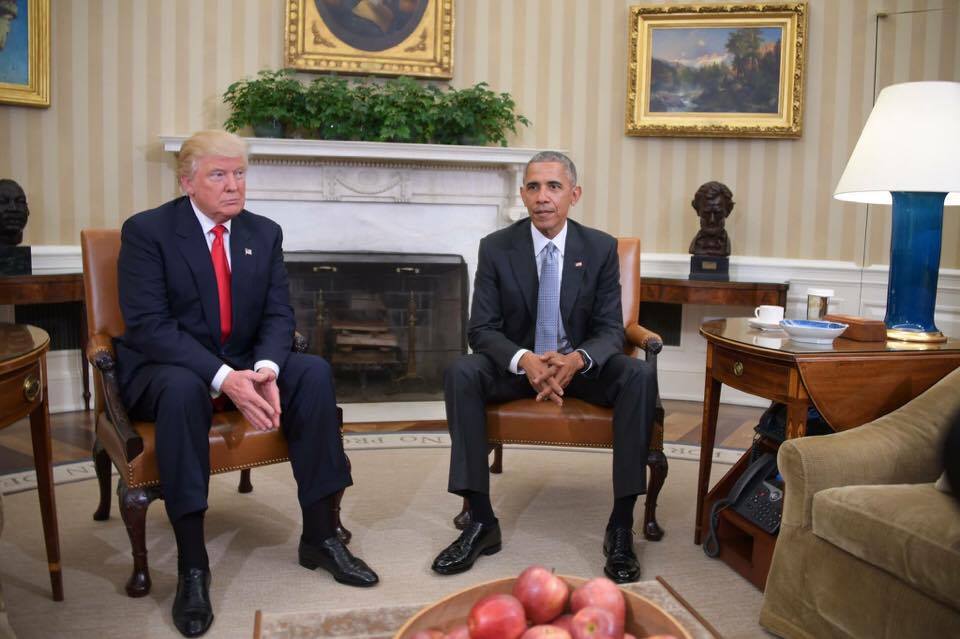
This photo says too much.
The whole election was a populist uprising, a revolt of the white working class which we are likely never to see on this scale. The Democratic Party ceased to be an effective party of the people, and a non-insignificant amount of racial animosity and economic misfortune conspired to hand the election to a loser. Not a winner, like he likes to say he is. A loser. A pathetic, aging bigot with a Freudian penchant for authoritarianism and a centrist-alternative, exploitative form of populism that played on people’s worst fears and their worst impulses. And now we must deal with the consequences.
It’s hard not to think of the election of Trump as anything other than a disaster, especially at home but also abroad. America’s reputation in the rest of the globe will continue to be derided and scrutinized as much as it was the day after the election. The events since Election Day have done little to inspire confidence that Trump will inspire confidence as a leader or change the office of which he promised to ‘drain the swamp.’ The conflicts of interest abound, he has chosen multiple Cabinet officials and members of his administration with a history of discrimination, and – perhaps most sadly for an alleged adult man of a sprightly 70 years old – the tweeting hasn’t stopped.
It’s going to be a long four years, and I can only be abroad for so much of it. Let’s see where life leads me and, more importantly, where life leads our country.
Stay tuned for more stories about Thanksgiving and friends.
